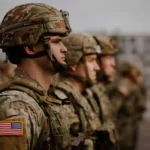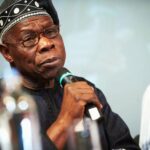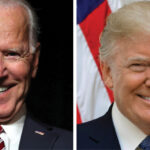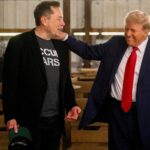Over the past four years, I have seen President Donald Trump on good days and bad days. But 7 November, the day he lost the election, was a day like no other.
Dressed in a black windbreaker, dark trousers and a white MAGA hat, or Make America Great Again, the president left the White House a few minutes before 10:00. He had spent the early part of his day tweeting about election fraud.
Now he leaned forward slightly, as if he were pushing into the wind. He climbed into a dark vehicle and headed to his golf club, Trump National in Sterling, Virginia, about 25 miles (40km) from the White House.
In that moment, he projected an air of confidence. It was a lovely day, perfect for golf, and he was going to spend the day at the club.
But the people who worked for him seemed on edge.
“How are you doing?” I asked one of the junior staffers.
“Fine,” she said. She smiled, but her eyes narrowed. She looked down at her phone.
Election trauma
The White House has been through some trauma in the days since the election. It was only on Tuesday, but it feels like a lifetime ago.
Many of the desks in the West Wing were empty when I walked through the building on Saturday morning. Several staffers have been infected with the coronavirus, and they were out of the office. Others were in quarantine.
Then, starting at about 11:30, while the president was at his golf club, the BBC and the US networks began calling the election for Joe Biden, his Democratic rival.
I was sitting in an Italian restaurant about a mile from the club when I heard the news. I’m a member of the White House press pool, a small group of journalists who travel with the president. We were all waiting for him to emerge from the club.
“He’s toxic,” said one woman outside the restaurant, who had, like most of her neighbours in this Democratic-leaning area, voted for his rival.
Others wondered aloud when the president would leave the club and go back to the White House. The minutes passed, then hours.
“He’s taking his time,” said a law-enforcement officer, quietly, to a colleague.
The president was in no hurry to leave. At the club, he was surrounded by friends. Outside the gates, supporters shouted at me and the other reporters: “Defund the media!”
A woman in sturdy heels and a red-white-and-blue bandana carried a sign reading “Stop the steal.”
A man drove his truck up and down the road in front of the club flying several flags, including one depicting the president standing on a tank, as if he were commander of the world. It showed how his supporters see him and how Mr Trump has seen himself for the past four years.
Finally, he headed out of the club and began his journey home.
His critics were waiting – in the thousands.
‘You lose and we all win’
The president’s motorcade roared through Virginia, with me riding in the motorcade in a van that narrowly avoided a crash on Fairfax County Parkway. Sirens blared.
The closer we got to the White House, the bigger the crowds became: people were out to celebrate his demise. Someone held up a sign: “You lose and we all win”. People honked and jeered.
Then we got back at the White House, the president went in through a side door, an entrance that presidents rarely use. His shoulders were slumped, and his head down.
He glanced over and saw me and the others in the press pool and gave us a thumbs-up. It was a half-hearted gesture; he did not raise his hand high or shake a fist, the way he often does.
Whether at the White House or at the golf club, the president has never wavered: he makes unsubstantiated claims about election fraud and insists he will be vindicated.
He tweeted in the morning about “illegally received” votes and by late afternoon he was declaring defiantly in all caps. “I WON THE ELECTION.”
But that was Mr Trump on Twitter. The man I saw left a different impression. As he ducked into the side door of the White House in the late afternoon, the swagger was gone. (Culled from BBC)
Tara McKelvey
BBC White House reporter
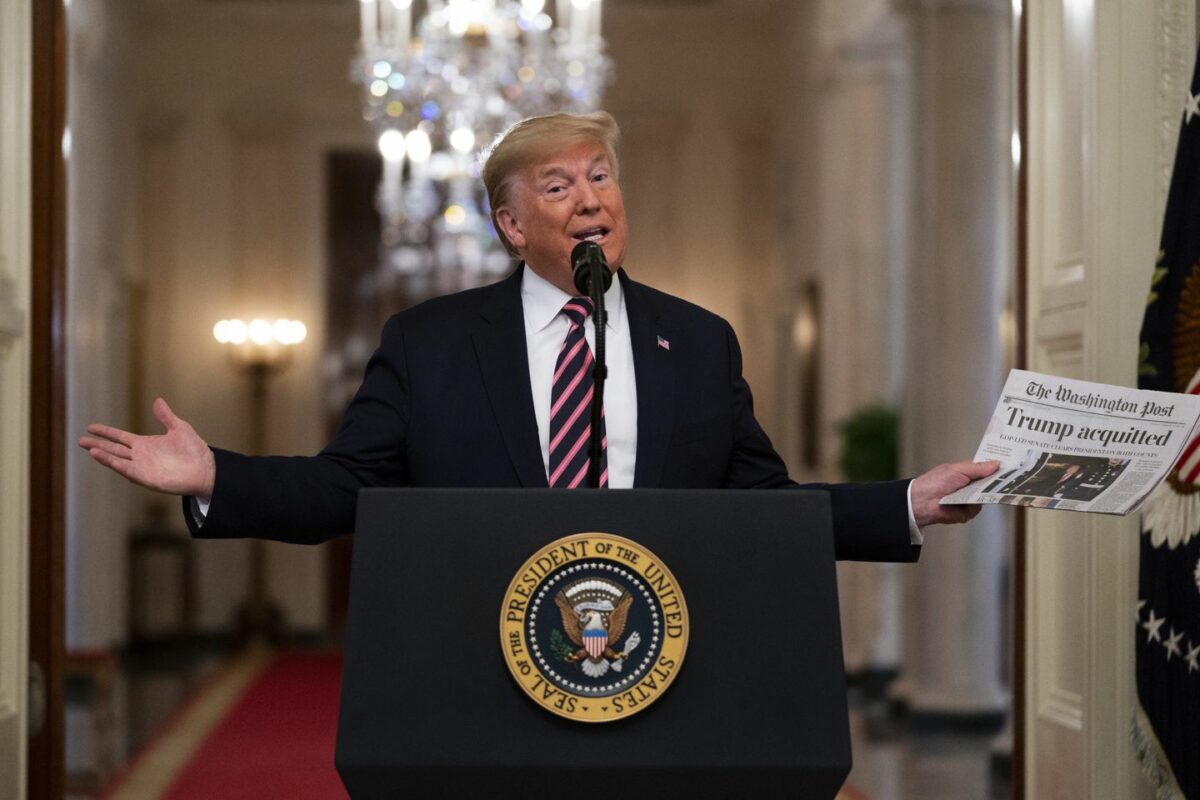
 Join Daily Trust WhatsApp Community For Quick Access To News and Happenings Around You.
Join Daily Trust WhatsApp Community For Quick Access To News and Happenings Around You.